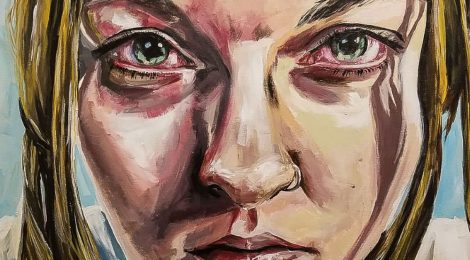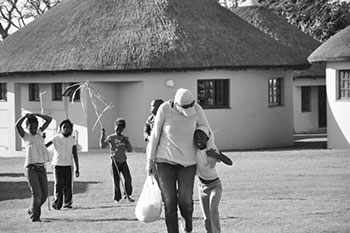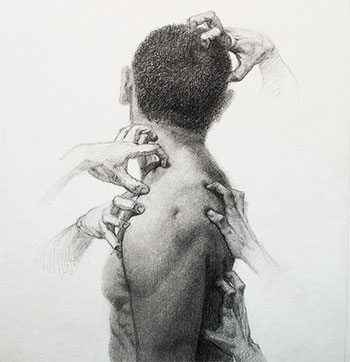
When Vicarious Trauma Victims Suffer From PTSD
Prolonged exposure to stress can have devastating effects on mental health. In fact, neuroscientists have found that chronic stress triggers long-term changes in the brain’s structure and functioning, making people more prone to mental illnesses such as anxiety, mood disorders, and in particular, post-traumatic stress disorder (PTSD). Typically, we associate PTSD with “shell shock”, war veterans, or assault survivors; and we are not wrong about this. But what we sometimes miss is that trauma exists in many forms, stretching way beyond these limits.

Amy Rolfes is an American retired middle school special education teacher and former Executive Director at an American-founded orphanage in Johannesburg, South Africa. Located in one of South Africa’s poorest neighbourhoods, Amy witnessed extreme violence and corruption. Gang violence, murder, and rape were just a few of the realities. This was all new to Amy, who often found herself in survival mode.
Upon returning home from Johannesburg, South Africa, Amy found her mental health was now severely affected. In an interview with The Trauma and Mental Health Report, she says:
“For the first two years that I was back from South Africa I absolutely was affected by my trauma; I was debilitated, but I couldn’t identify it and no one else could either.”
Amy felt disoriented and struggled to understand the roots of her pain. She experienced flashbacks and had trouble sleeping for months. She remembers a friend suggesting she might be suffering from PTSD.
“I remember that moment so clearly because I threw my hands up in the air and said ‘for God’s sake I wasn’t in Vietnam!’” But Amy started to consider that maybe her friend was right.

It’s common for trauma survivors to minimize their psychological suffering. Some internalize or brush off symptoms. This happened to Amy. She would ask herself why it was so hard to cope.
A study on PSTD symptoms in 9-1-1 dispatchers shows how wide-reaching trauma can be: It’s not even necessary to be physically present during a traumatic event or even personally know the victim for the event to adversely affect mental health. Vicarious trauma can be as overwhelming as experiencing the situation first-hand.
As Amy explains:
“That’s the part that I am most worried about. People are going over and doing this good work and they are becoming traumatized. They are experiencing trauma and they are hiding it because of shame, and because of not even understanding. If you don’t come home assaulted, or with your arm chopped off, everybody says ‘you’re fine’; and so I kept telling myself ‘no, I’m fine.’”
Amy believed her distress was “less-than” the distress of those who’d experienced trauma first-hand. But the effects of vicarious trauma were debilitating. She contacted the Headington Institute, an online training-centre that partners with humanitarian relief and emergency responders. It provides support, resources, and coping strategies for those who have experienced traumatic stress and vicarious trauma during and after deployment. After reaching out to them, Amy felt as though she was not alone anymore.
“Now, I clearly see that it was as if my entire body was on fire, flames of trauma shooting out.”
Through therapy and writing about her experiences, Amy found recovery. She says the writing process helped her to let go of the disturbing memories and allowed her to distance herself from the trauma.
Amy says:
“It is a sense of peace, after recovering from this trauma, understanding it, learning about it, even re-telling the stories, I really do feel a sense of peace. I feel that there is trauma and crazy things that happen in this world, but nonetheless, everything happens for a reason. I am a lot more accepting, and a lot more forgiving. I feel a deeper sense of self.”.
–Emma Bennett, Contributing Writer
Image Credits:
Feature: Charli Forrester at cmforrester.com, Used with Permission
First: Amy Rolfes at amyrolfes.com, Used with Permission
Second: ZarinaSitumorang at DeviantArt, Creative Commons, some rights reserved



